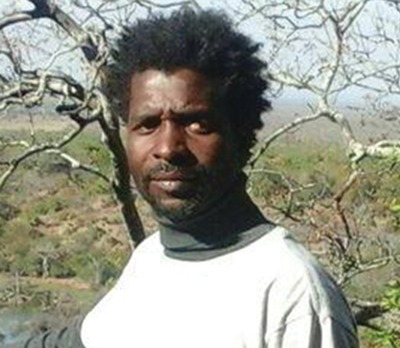
“WE are ready to die for you”, was a popular theme across the social media. It rang and echoed on every handheld gadget as Zimbabweans have more time on their hands thanks to the ongoing COVID-19 lockdown.
This is not a new phenomenon in not only Zimbabwean politics, but also in South Africa.
Locally, the late former President Robert Mugabe enjoyed a near deity status between 1980 and 1990.
His word was the law, he was both Zanu PF and the government — an institution unto himself.
There were the original youth brigades after 1980 and later the “green bombers”, who to all intents and purposes were a youth militia for Zanu PF.
However, Zanu PF was Mugabe and, therefore, it was a personal militia.
They were a thought police — criticising Mugabe or his policies was like signing a death warrant.
Mugabe had become a religion and saying anything bad about him was blasphemy and many paid by blood or limb. The party was the law and the court.
- Chamisa under fire over US$120K donation
- Mavhunga puts DeMbare into Chibuku quarterfinals
- Pension funds bet on Cabora Bassa oilfields
- Councils defy govt fire tender directive
Keep Reading
A Zanu PF district chairman was more powerful than a police district commanding officer or a district administrator for example.
Institutions and structures were rendered subordinate to the party.
Across the Limpopo in South Africa, there was a political smooth operator — Jacob Zuma — popularly known as Msholozi.
The man had no respect for institutions, he was the institution. He looked after his people through corruption, building a network that became a State within a State.
Economic Freedom Fighters (EFF) leader Julius Malema, then African National Congress (ANC) youth league president, said the infamous statement that he was ready to kill for Zuma.
However, it is a truism that change is the only constant in life.
Events of the November 2017 coup against Mugabe proved that party supporters can be cunning too. Many, who were ready to die for Mugabe, turned against him, including those at the top table.
Even Oppah Muchinguri had some unsavoury words about Mugabe despite that she has always been close to the throne in one way or another.
In South Africa, Malema was fired from the ANC and formed his own party — EFF — which has become a thorn in the backside of the ANC.
Malema relished every opportunity to humiliate Msholozi every time he came to Parliament as President.
The ANC at the end was left with no option, but to recall its leader who had become a liability to the party’s hold onto power.
Enter the opposition MDC to the Zimbabwean political landscape in 2000. It had Morgan Tsvangirai at the helm.
The party gave Mugabe a fright in the 2000 parliamentary election. Mugabe had taunted Tsvangirai, saying he would not get even a single seat in Parliament. What came of it?
The MDC won 57 of the 120 contested seats despite widespread and systematic violence against opposition supporters. Tsvangirai’s star rose and with it his immunity to criticism.
Tsvangirai — like Mugabe — became bigger than the institution he founded.
Thrice in just over a decade, Tsvangirai breached his own party constitution and the members saw nothing wrong.
In 2005, he caused a split in the nascent party over participation in Senate elections.
In 2011, he caused the amendment of the constitution to remove term limits and finally, in 2016, he gave himself power to appoint two vice-presidents in the party, despite that those positions were supposed to be elected at a congress.
No one dared to censure him in the party — confirming the position that a popular leader is beyond reproach.
Nelson Chamisa learnt well from the Tsvangirai episodes — if one is popular he can get away with anything.
Chamisa lost no opportunity to grab power after Tsvangirai’s demise to cancer of the colon on Valentine’s Day in 2018.
The national standing council cheered him on despite what the party constitution said. Anyone who tried to counsel restraint was a Zanu PF implant, so the party faithful said.
Even in the face of a High Court order and this week’s Supreme Court upholding of the ruling, the party supporters are not convinced Chamisa is a power usurper.
They have gone on overdrive on social media to denounce and cast aspersions against anyone who sees reason.
More worringly, especially people like Tendai Biti, Welshman Ncube and David Coltart, who were once labelled sellouts, Zanu PF surrogates for questioning Tsvangirai’s dictatorial tendencies, have not shown restraint — they are throwing the same shade on those perceived to have engineered the court case.
They have even gone to the extent of creating their own strawmen arguments to justify why the party is not in peril after the Supreme Court judgment.
They are clutching at every straw, instead of admitting the party made a bad decision and they are ready to cure it.
Even with lessons from Mugabe, Zuma and Tsvangirai, the old adage that people fail to learn from history continues to be proven true.
The party members, in relation to popular and charismatic leaders, they see no evil and want to hear no evil.
Is MDC suffering from the House of Bourbon curse — learning and forgetting nothing in having to observe democratic credentials and constitutionalism? The social media onslaught and its echoes prove the party is not ready to reform.
Paidamoyo Muzulu is a journalist and writes here in his personal capacity.











